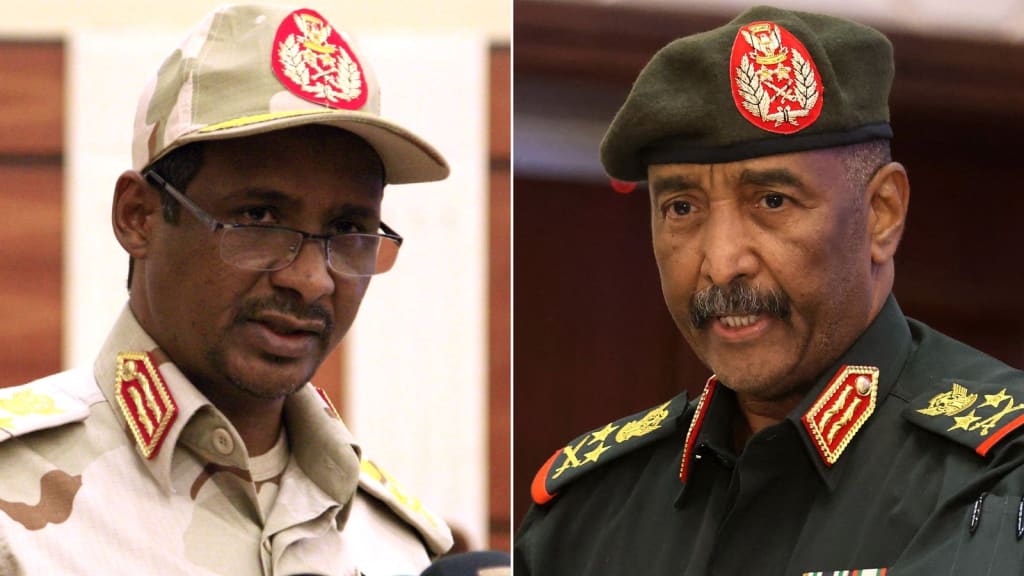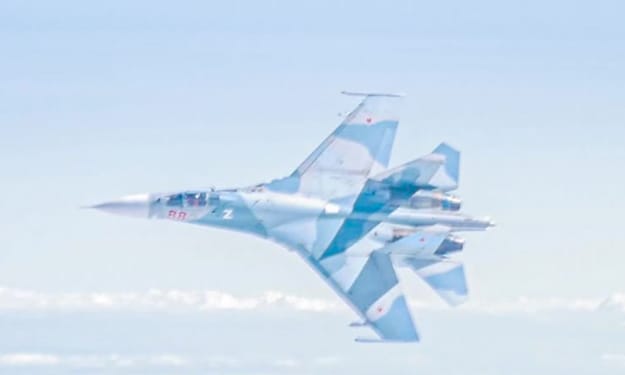West enables Sudan's generals
The complicity of Western powers in Sudan's authoritarian regime and its devastating consequences.

Sudan has long been plagued by conflict and instability, with warring factions and military generals vying for power and control over the country's resources. The roots of this conflict can be traced back to the country's colonial past, as well as to the many years of authoritarian rule under former President Omar al-Bashir. Despite efforts to establish a civilian-led government in the wake of al-Bashir's ouster in 2019, the country remains deeply divided and wracked by violence.
One factor that has contributed to this ongoing conflict is the role played by Western powers in enabling Sudan's warring generals. For decades, the West has provided military and economic support to Sudan's military rulers, even as they committed gross human rights abuses and engaged in violent suppression of political opposition. This support has helped to prop up these regimes and allowed them to continue their oppressive rule, exacerbating the country's internal divisions and perpetuating conflict.
One example of this is the support provided by the United States to Sudan's military rulers during the 1990s and early 2000s. During this time, the U.S. government designated Sudan as a state sponsor of terrorism, and imposed economic sanctions on the country. However, the U.S. also continued to provide military aid to the country's rulers, despite evidence of their involvement in gross human rights abuses and the suppression of political opposition. This aid helped to strengthen the military regime, and allowed it to maintain its grip on power, even as it committed atrocities against its own people.
Similarly, European countries such as France and the UK have also provided military and economic support to Sudan's military rulers over the years. France, for example, has provided training and military equipment to the Sudanese military, despite concerns about their involvement in human rights abuses. The UK has also been a major source of military aid to the country, and has worked closely with Sudan's intelligence services, even as they engaged in violent repression of political opposition.
This support for Sudan's military rulers has come at a cost. The continued support of Western powers has helped to perpetuate the country's internal divisions, as well as exacerbating the ongoing conflict in regions such as Darfur and South Kordofan. The military regime has been accused of committing gross human rights abuses in these regions, including extrajudicial killings, torture, and the forced displacement of civilians. The ongoing conflict has also had a devastating impact on the country's economy, with many areas of the country suffering from chronic poverty, high unemployment, and food insecurity.
In recent years, there have been some efforts to address these issues, and to support the establishment of a civilian-led government in Sudan. However, these efforts have been hampered by ongoing support for the military rulers, particularly from countries such as Saudi Arabia and the United Arab Emirates. These countries have provided significant financial support to the military regime, and have sought to undermine efforts to establish a democratic government in the country.
The impact of this support can be seen in the ongoing political crisis in Sudan. In October 2021, the country's military rulers launched a coup, ousting the transitional government that had been established in the wake of al-Bashir's ouster. The coup was widely condemned by the international community, but the military regime has continued to receive support from countries such as Russia and China, which have vetoed attempts by the United Nations to impose sanctions on Sudan.
The ongoing conflict in Sudan highlights the need for a more nuanced approach to foreign policy in the region. Western powers must acknowledge their role in perpetuating the conflict, and work to support the establishment of a democratic government in the country. This will require a shift away from support for military rulers, and a greater emphasis on supporting civil society organizations and promoting human rights and democracy.






Comments
There are no comments for this story
Be the first to respond and start the conversation.